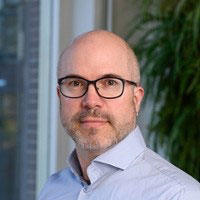Future heritage, nostalgia and everydayness in South Korea
Lecture by Elmer Veldkamp, University Lecturer Korean Studies, Leiden University.
 In this lecture, I explore the relation between the concept of (cultural) heritage in South Korea and how it can, may or should take form in the future. The etymology of the word ‘heritage’ implies a connection to, and inheritance from, the past. When thinking about the future of heritage, or heritage in the future, much focus is put on the ever-present concern for continuation of current preservation. This is seen in initiatives such as preventing the demise of buildings or securing the education of new practitioners of a traditional craft or performance.
In this lecture, I explore the relation between the concept of (cultural) heritage in South Korea and how it can, may or should take form in the future. The etymology of the word ‘heritage’ implies a connection to, and inheritance from, the past. When thinking about the future of heritage, or heritage in the future, much focus is put on the ever-present concern for continuation of current preservation. This is seen in initiatives such as preventing the demise of buildings or securing the education of new practitioners of a traditional craft or performance.
Such a perspective was established in the past (roughly early to mid-twentieth century) for a past even further back in time (the past worth preserving). It does not cover what we will or can preserve in say, fifty to a hundred years. This is where the South Korean plans surrounding ‘future heritage’ and ‘provisional heritage’ come in, which proclaim to preserve the very recent past and even current times for future generations. This lecture discusses how these plans relate to existing heritage theory and thinking, and how their focus on everydayness poses new issues for preservation practices in the present day South Korean landscape.
Speaker
 Elmer Veldkamp is an anthropologist of Korea and Japan, who focuses on the collective and individual processes by means of which people make sense of changes and developments in their everyday lives.
Elmer Veldkamp is an anthropologist of Korea and Japan, who focuses on the collective and individual processes by means of which people make sense of changes and developments in their everyday lives.
Funding
 The event is funded by HUM:Global.
The event is funded by HUM:Global.
Map of South Campus
View directions.
View on map of the Faculty of Humanities - South Campus.
View map of South Campus (pdf).
